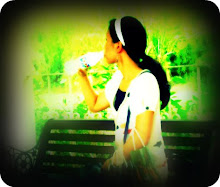
Easter eggs are specially decorated eggs given to celebrate the Easter holiday or springtime.
The egg was a symbol of the rebirth of the earth in Pagan celebrations of spring and was adopted by early Christians as a symbol of the rebirth.
The oldest tradition is to use dyed or painted chicken eggs, but a modern custom is to substitute chocolate eggs, or plastic eggs filled with confectionery such as jelly beans. These eggs are often hidden, allegedly by the Easter Bunny, for children to find on Easter morning. Otherwise, they are generally put in a basket filled with real or artificial straw to resemble a bird's nest.
The egg is seen as symbolic of the grave and life renewed or resurrected by breaking out of it. The red supposedly symbolizes the blood of Christ redeeming the world and human redemption through the blood shed in the sacrifice of the crucifixion. The egg itself is a symbol of resurrection: while being dormant it contains a new life sealed within it.
For Orthodox Christians, the Easter egg is much more than a celebration of the ending of the fast, it is a declaration of the Resurrection of Jesus. Traditionally, Orthodox Easter eggs are dyed red to represent the blood of Christ, shed on the Cross, and the hard shell of the egg symbolized the sealed Tomb of Christ—the cracking of which symbolized his resurrection from the dead.
In the Orthodox and Eastern Catholic Churches, Easter eggs are
During Paschaltide, in some traditions the Paschal greeting with the Easter egg is even extended to the deceased. On either the second Monday or Tuesday of Pascha, after a memorial service people bring blessed eggs to the cemetery and bring the joyous paschal greeting, "Christ has risen", to their beloved departed


No comments:
Post a Comment